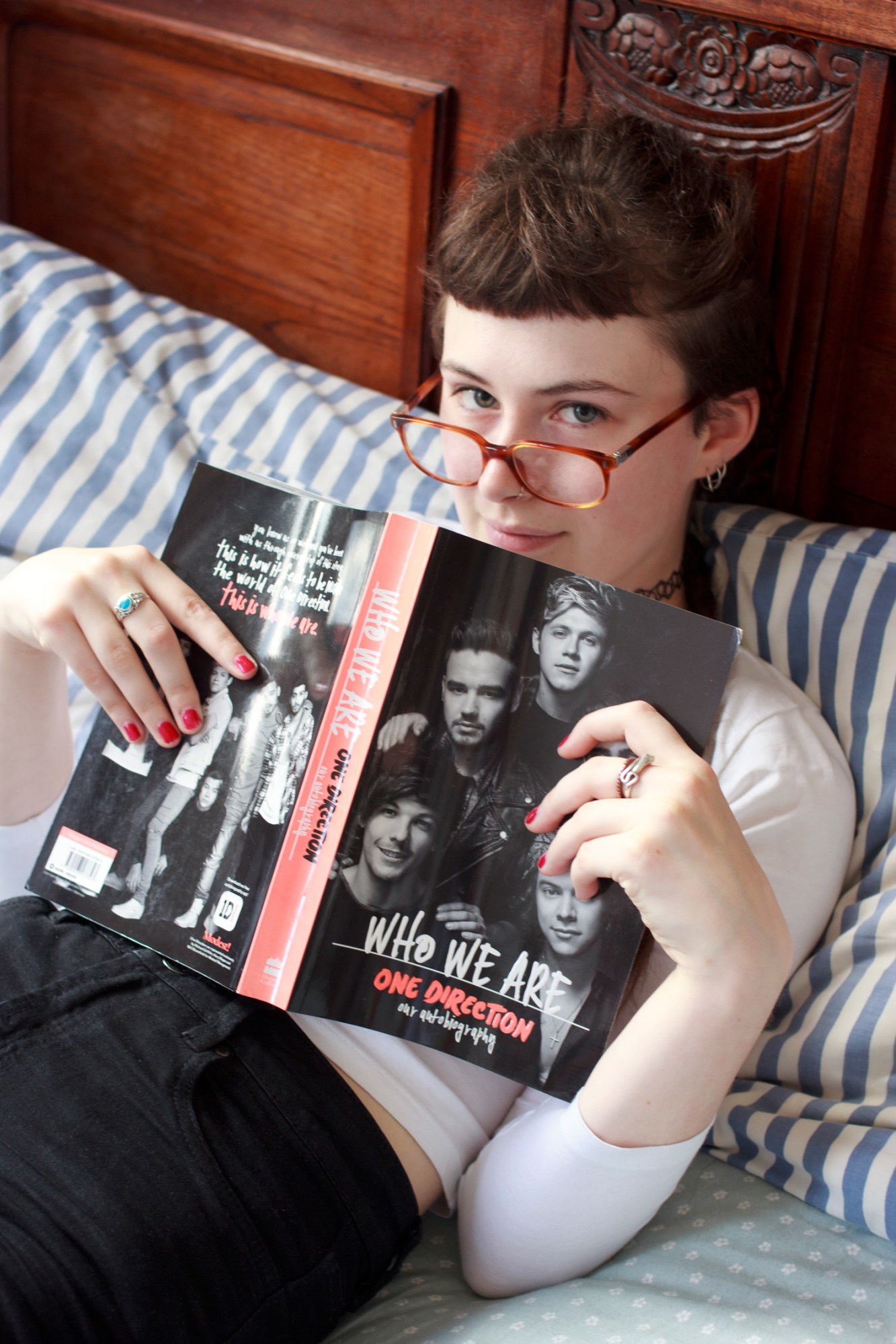Female fandom has been dismissed and denigrated by society ever since teenage girls were broadcast screaming over The Beatles. But as anyone who painstakingly hand-painted their own band T-shirt, spent hours collating posters on their bedroom walls, or wept at a concert knows, fandom is not only harmless, it can be healthy.
Millie Lovelock is so dedicated to this theory that she’s made One Direction and its fandom the focus of her English Master’s degree at Otago University in New Zealand. Millie became interested in the superstar boy band when her former bandmate told her how much he got out of their movie, One Direction: This Is Us. Despite hardly being the target audience, he admitted he found the guys inspiring from a songwriting perspective.
Initially Millie, who also sings and plays guitar in the post-punk band Astro Children, thought this was “kind of funny.” But after seeing a surge of positive online articles about the band’s relationship with its fan base, she caved to her curiosity and watched the film.
Now, studying the band is Millie’s job. She’s come a long way from feeling indifferent toward the X-Factor alums; today, she considers their fandom powerful enough to change lives. She argues it brings young girls together, helps them feel less isolated and serves as a tool to carve out personal identities.
Finding solidarity and community through pop music isn’t new. Many Gen-Y women grew up with female icons like The Spice Girls helping them articulate their feelings about their world. But it’s less common for a crew of young men to create an avenue for female self-discovery. Millie reckons one moment in the One Direction movie surmises the power of the band: when a group of girls are asked why they love the band, they reply, “because they sing our feelings.”

“It’s so powerful,” says Millie, “when you think these are guys and they’re singing from a male perspective. But the feelings they’re singing about are the feelings that teenage girls are having.” Obviously, the members of One Direction possess a very special kind of non-threatening male beauty, which one must account for; but Millie feels it’s shortsighted to say their success is owed to hormones. Rather, she argues One Direction are significant and beloved because “they consistently stick by their fans”.
“When people say, ‘You’ve got all these crazy girls after you,’ they’re quite good at saying, ‘They’re not crazy, they’re just excited, they’re passionate, they’re interested in something,'” she explains. Millie’s right: even after leaving the band, Zayn Malik defended the group’s supporters in his first interview as a solo artist. Interviewer Duncan Cooper recounts, “when I slip up in describing this type of behavior as ‘crazy,’ Zayn corrects me to say his fans are just ‘passionate’.”
The band don’t just respect their fans, Millie argues, their discography has become a tool young women use to explore and construct their identity. She points to a multitude of ways fans take the band’s narratives (songs, promotional material, interviews and videos) and produce what they want from it; be it fan fiction or art on Tumblr. Young women are using the product they love to construct ways to express their own sexuality and identity.
“It’s very remote and very helpful,” Millie says. “Because as a young woman there’s not a lot being provided to you, no one’s really talking to you about your sexuality. It makes sense to retreat into this online community where you can talk about this kind of stuff.”
While fandoms have become an increasingly active part of pop culture, they’re not a popular topic in academia. Millie thinks the broadening influence of the band and the reducing distinction between “high” and “low” culture helped validate her proposal to study One Direction at university. While her topic is a neat conversation starter, she ultimately wants her Master’s to help validate teenage fan culture by intellectualizing it: after all, what’s more serious than the love of a fan?
Credits
Text Sarah Gooding
Photography Erin Lee
